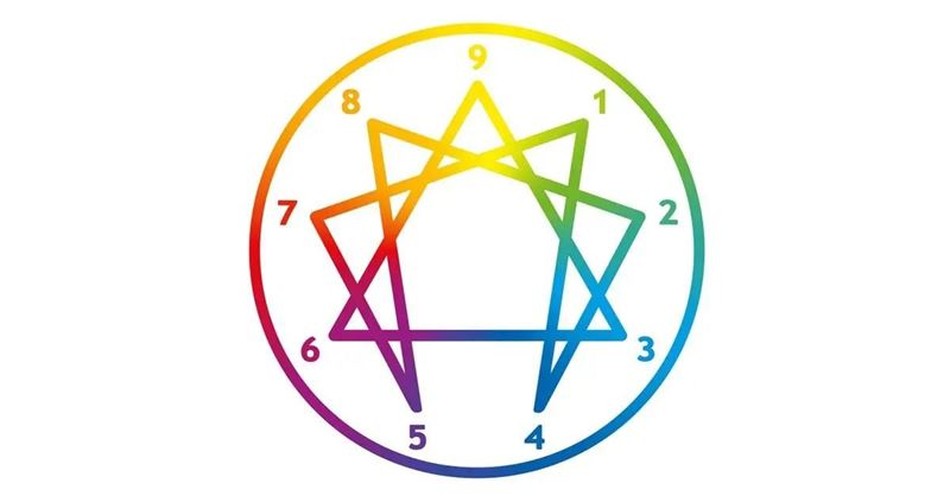You've likely heard other Christians talking about the Enneagram personality test. If not, you may have taken the test yourself. Unlike many other personality tests, this one tends to have the closest accuracy and definitely has accrued interest amongst Christian circles. You may find a common ice breaker in a Bible Study or women's retreat to be, "What is your Enneagram number?"
But what exactly is the Enneagram personality test? What is a basic understanding of the nine types of the Enneagram, and why do Christians seem to love this personality test so much? We'll explore these questions and more.
What Is the Enneagram?
The Enneagram, as well as being a nine-point geometric figure, is a now well-known, nine-point personality test developed by George Gurdjieff, Oscar Ichazo, Claudio Naranjo and others.
According to Cron and Stabile's The Road Back to You, Naranjo, a psychiatrist from Chile, “brought the Enneagram back to the United States” and introduced it to a group of students, one of whom, Father Robert Ochs, later taught it to seminary students at Loyola University. Thus, the Enneagram entered American Christian circles, rippling outward from there.
In addition to being a personality test, the Enneagram promotes self-knowledge and self-awareness. In the words of the Reformer, John Calvin, “Without knowledge of self, there is no knowledge of God.”
Without honest, reflective introspection guided by the Spirit of God through the illumination of the Word of God, we as humans can be ignorant of sin and other hindrances to our spiritual growth and usefulness for Christ. Hebrews 12:1 exhorts us to, “throw off everything that hinders and the sin that so easily entangles [and] run with perseverance the race marked out for us…” (NIV). It is impossible to throw off hindrances and sin if we are unaware of them.
We are also warned in Scripture against division and dissension (Romans 13:13, 1 Corinthians 12:25, Galatians 5:20). A deeper understanding of how God has designed us all differently can lead to greater patience, long-suffering and unity.
Enneagram Personality Types
The Enneagram lays out nine main personality types, “one of which we naturally gravitate toward and adopt in childhood to cope and feel safe. Each type or number has a distinct way of seeing the world and an underlying motivation that powerfully influences how that type thinks, feels and behaves,” according to The Road Back to You.
The nine personality types are:
Type One: The Perfectionist
This type of person often can be a great orchestrater. They have a tendency to see things in black and white and often lean more toward justice than mercy.
Type Two: The Helper
The helper cannot help but help. They often will find their worth in being a great host or giver unto others.
Type Three: The Performer
As implied by the name, this person often thrives off of productivity and achievement.
Type Four: The Romantic
Fours tend to have a strong artistic and emotional side. They often see the world in a very different light than others.
Type Five: The Investigator
If you've been told you're a great listener, you may be a five. They observe the world around them in quietude and often pick up on small details.
Type Six: The Loyalist
As indicated by the title, this person is often a very loyal friend. You know you can rely on this person. They often will help to solve problems as well.
Type Seven: The Enthusiast
These people tend to be full of energy and spontaneous. They're often great at entertaining and tend to have a more daring side.
Type Eight: The Challenger
Eights tend to tell you as it is. They value honesty and won't mince words around you.
Type Nine: The Peacemaker
A nine often will blend in with a group in which they have been placed. They value peace and good relationships.
According to Cron and Stabile, each number or personality type is “divided into three triads – three in the Heart or Feeling Triad, three in the Head or Fear Triad, and three in the Gut or Anger Triad.” All nine numbers also have a corresponding temptation or “deadly sin”: (1) anger, (2) pride, (3) deceit, (4) envy, (5) avarice, (6) fear, (7) gluttony, (8) lust, and (9) sloth.
Unique Benefits of the Enneagram
1. It helps Christians understand their sin struggles.
The Enneagram is loved by Christians for its ability to help a person understand their disposition and tendency toward certain sin struggles.
2. It helps Christians understand other people.
It also assists us in better understanding others. To quote an evangelical missionary to England who uses the Enneagram in business leadership:
“It fits the Christian worldview that sin and brokenness is present in every individual and shapes who we are. A Christian’s main priority is to love God and love people (Matthew 22:37-39). As we attempt to love people, we are constantly confronted with the difficulty of that task due to our differences. The Enneagram equips us with tools to understand people as well as what drives them and how they act/react. This helps us in our journey to better love people.”
3. It’s spiritually based.
The Enneagram is unique in that it is spiritually based rather than merely psychological, for instance like the Myers-Briggs Type Indicator.
Ian Morgan Cron and Suzanne Stabile recently co-authored a book entitled The Road Back to You: An Enneagram Journey to Self-Discovery (2016), which is a guide to understanding the spiritually beneficial nature and uses of the Enneagram. Of course, as with any human tool or invention, there are both strengths and weaknesses.
A helpful resource for understanding and discerning pros and cons of the Enneagram is “The Road Back to You, Or to Somewhere Else?”by Kevin DeYoung.
Many people have found the Enneagram, at the very least, to be an intriguing way of learning a bit more about yourself than you knew before, and at the very most, to be a helpful tool toward spiritual, personal and relational growth.
In 1 Corinthians 11:28-31 Paul admonished believers to examine themselves. He wrote, “But if we were more discerning with regard to ourselves, we would not come under such judgment.”
Similarly, Lamentations 3:40 says, “Let us examine our ways and test them, and let us return to the Lord.”
Ultimately, the greatest “test” for spirituality is to know God through His Word and examine ourselves against His standard of holiness and righteousness. Knowing your Enneagram number may prove beneficial, but unless it drives you to Jesus, it is merely an amusement. Make sure to always exercise discernment and not place too much stock in personality tests. We find our true identity in Jesus. Personality tests can sometimes have a tendency to divide and place Christians into separate camps. Know that we make up one body in Christ and that we find our identity in him alone.
If you find that personality tests have deterred your walk with Christ, steer clear of them.
Sources
Ian Morgan Cron and Suzanne Stabile, The Road Back to You: An Enneagram Journey to Self-Discovery, Downers Grove, IL: InterVarsity Press, 2016, 11.
John Calvin, Institutes of the Christian Religion, 1599, Book 1, Chapter 1, https://reformed.org/books/institutes/books/book1/bk1ch01.html.
Photo Credit: Getty/Peter Hermes Furian









